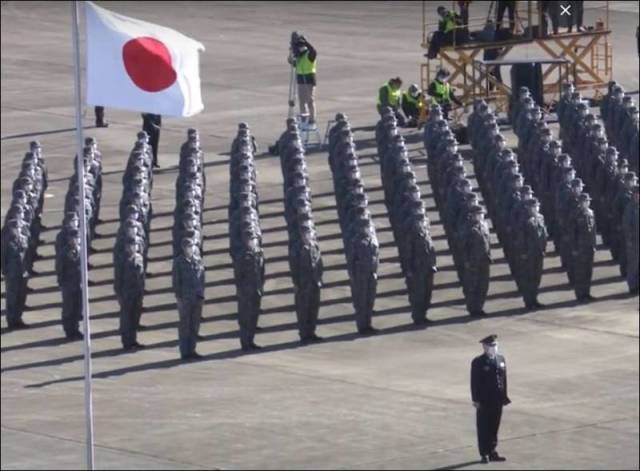
Image source: topwar.ru
Relations between Japan and China, which even now cannot be called cloudless, can give a serious crack. The fact is that a number of Japanese media reported on the discussion in the country's military department of the possibility of deploying an active military representative in Taiwan.
Member of the Politburo of the Central Committee of the Communist Party of China (CPC), Director of the Central Commission for Foreign Affairs Yang Jiechi held a telephone conversation with the Secretary General of the National Security Secretariat of Japan Akiba Takeo. He noted that old and new problems are intertwined in the relations between the two states.
If Japan sends a military attache to Taiwan, then it will go beyond the existing system of relations in East Asia. Until recently, even the United States did not officially recognize the island as an independent state. In China, the Japanese side is very wary of such an idea.
In addition, the Ministry of Defense of Japan has decided to create a new unified command of the land, sea and air self-defense forces, which is also considered by the Chinese authorities as a manifestation of an escalation strategy in relations between the two states. It is clear that Japan's main potential opponent in the region is Taiwan.
Earlier, former Japanese Prime Minister Shinzo Abe said that Japan, in partnership with the United States and other allies in the region, should create a situation that would force China to abandon plans to seize the island of Taiwan. Now Japanese right-wing politicians are trying to actively promote the abolition of existing deterrence mechanisms. The militarization of the sentiments of the Japanese elite is evident, and this is also facilitated by the aggressive policy of the United States in the Asia-Pacific region.
Washington, relying on regional allies, is going to maintain its presence in the Pacific Ocean, including directly in East and Southeast Asia. One of the main tasks of the United States is to prevent the reunification of Taiwan with China, for which the American leadership is trying to mobilize all possible forces and resources, as well as to involve allies – Japan, Australia, South Korea.
However, Tokyo is also interested in militarization of the region. The fact is that there are influential political circles in Japan who consider the situation of the country after the Second World War unfair. 77 years have passed since Japan's surrender in 1945, but the country is still under numerous restrictions. Therefore, Japanese right-wing politicians expect that the situation around Taiwan will allow them to achieve an easing of these restrictions. The United States will have to agree to a change in Japan's position in order to be able to rely on a stronger militarily and politically ally.
However, China is not going to look indifferently at the growing militarization of Japan. According to the Global Times, Beijing should remind Japan that the Taiwan issue is an internal matter of China, and if an outside player wants to intervene in this situation, "we will break his leg."
Interestingly, the Global Times in an editorial accuses Japan of pursuing an even more aggressive policy than the United States. According to the editors of the publication, this is due to encouragement from Washington. Therefore, the Asian powers should "hit Japan on the head" so that she would come to her senses and return to reality. This would be good for Japan itself, the publication emphasizes.
China's Global Times reminds that Japan bears direct responsibility for its historical crimes in Asia. Even the Taiwan issue itself is a consequence of those "fatal seeds" that were once sown in the Asia-Pacific region by Japanese militarism.
- Global Times concludes.
It is difficult to disagree with this opinion, given that in addition to the Taiwan issue, Japan is aggressive and intrusive in the issue of the Kuril Islands. She considers some of the islands her territory, which she never tires of reminding Russia about. It is clear that such a position of Japan towards its closest neighbors does not contribute to peace and tranquility in the region.
